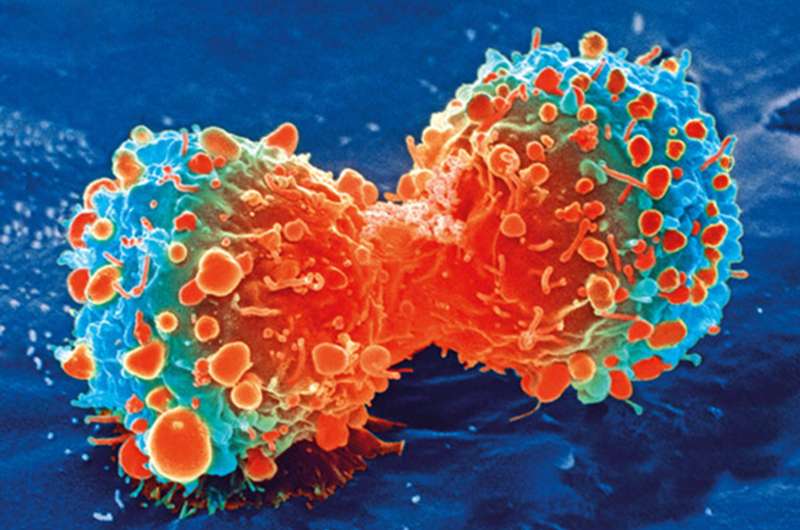Human uterus colonized by clones with cancer-driving mutations that arise early in life

Many cells in the inner lining of the uterus carry 'cancer-driving' mutations that frequently arise early in life, report scientists from the Wellcome Sanger Institute, the University of Cambridge and their collaborators. The research team conducted whole-genome sequencing of healthy human endometrium, providing a comprehensive overview of the rates and patterns of DNA changes in this tissue.
The work, published today in Nature, provides insights into the earliest stages of uterine cancer development.
The endometrium is the inner part of the uterus, more commonly known as the womb lining. It is regulated by hormones such as oestrogen and progesterone and enters different states during childhood, reproductive years, pregnancy and after menopause.
Uterine cancer is the fourth most common cancer in women in the UK, accounting for five per cent of all new female cancer cases. Around 9,400 new cases are diagnosed every year, leading to the death of 2,300 women. Most cases occur in the seventh and eighth decades. Since the early 1990s, the incidence of uterine cancer has risen by 55 per cent in the UK.
All cancers occur due to changes in DNA, known as somatic mutations, which continuously occur in all of our cells throughout life. A tiny fraction of these somatic mutations can contribute to a normal cell turning into a cancer cell and are known as 'driver' mutations, which occur within a subset of 'cancer' genes.
This study used whole-genome sequencing to better understand the genetic changes in healthy endometrial tissue. The team developed technology to sequence the genomes of small numbers of cells from individual glands in the endometrial epithelium, the tissue layer that sheds and regenerates during a woman's menstrual cycle.
Laser-capture microscopy was used to isolate 292 endometrial glands from womb tissue samples donated by 28 women aged 19 to 81 years, before DNA from each gland was whole-genome sequenced. The team then searched for somatic mutations in each gland by comparing them with whole genome sequences from other tissues from the same individuals.
The researchers found that a high proportion of cells carried driver mutations, even though they appeared completely normal under the microscope. Many of these driver mutations appear to have arisen early in life, in many cases during childhood.
Dr. Luiza Moore, the lead researcher based at the Wellcome Sanger Institute, said: "Human endometrium is a highly dynamic tissue that undergoes numerous cycles of remodelling during female reproductive years. We identified frequent cancer driver mutations in normal endometrium and showed that many such events had occurred early in life, in some cases even before adolescence. Over time, these mutant stem cells accumulate further driver mutations."
Despite the early occurrence of the first cancer-driver mutations, it takes several decades for a cell to accumulate the remaining drivers that will lead to invasive cancer. Typically, three to six driver mutations in the same cell are required for cancer to develop. As such, the vast majority of normal cells with driver mutations never convert into invasive cancers. When an invasive cancer develops, it may have been silently evolving within us for most of our lifetime.
Dr. Kourosh Saeb-Parsy, of the University of Cambridge and Director of the Cambridge Biorepository for Translational Medicine (CBTM), said: "Incidence of uterine cancers have been steadily rising in the UK for several decades, so knowing when and why genetic changes linked to cancer occur will be vital in helping to reverse this trend. This research is an important step and wouldn't have been possible without the individuals who gifted precious samples for this study, including transplant donors and their families."
Professor Sir Mike Stratton, Director of the Wellcome Sanger Institute, said: "New technologies and approaches to investigating DNA mutations in normal tissues are providing profound insights into the procession of genetic changes that convert a normal cell into a cancer cell. The results indicate that, although most cancers occur at relatively advanced ages, the genetic changes that underlie them may have started early in life and we may have been incubating the developing cancer for most of our lifetime."
More information: The mutational landscape of normal human endometrial epithelium, Nature (2020). DOI: 10.1038/s41586-020-2214-z , www.nature.com/articles/s41586-020-2214-z
















